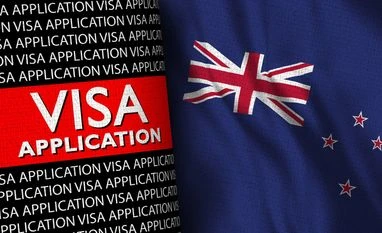New Zealand, long admired for its scenic landscapes and stable economy, has in recent years turned into a magnet for global investors and high-net-worth individuals (HNIs) through its “golden visa” scheme. Officially known as the Investor Visa program, it offers residency rights to wealthy foreigners who make significant financial investments in the country. With new rules now in place, the scheme continues to attract global attention while also stirring debate on its economic and social impact.
What is the ‘Golden Visa’?
The golden visa scheme is a residency-by-investment program. It allows foreign nationals to obtain the right to live in New Zealand if they commit a large financial investment into the country’s economy. These investments can range from government bonds and equities to direct investments in New Zealand businesses. The idea is to channel foreign capital into productive sectors while offering wealthy individuals the chance to settle in a politically stable and high-quality living environment.
New Rules and Reforms
In response to concerns about misuse and the need for more meaningful contributions, New Zealand has restructured its golden visa framework:
-
Higher Investment Thresholds: Applicants must now commit larger sums—often in the millions—ensuring only serious investors qualify.
-
Focus on Active Investments: Instead of passive holdings like bonds, the rules encourage investments in start-ups, innovation, renewable energy, and job-creating enterprises.
-
Longer Residency Conditions: To curb “citizenship shopping,” investors are required to spend more time physically residing in New Zealand before gaining permanent rights.
-
Transparency in Source of Funds: Stricter checks ensure that the money invested is clean and compliant with international anti-money laundering standards.
Why It Matters for New Zealand
For New Zealand, the scheme brings much-needed foreign capital, technology partnerships, and global networks. It supports small businesses, funds green initiatives, and strengthens the country’s global investment profile. Critics, however, argue that it risks inflating real estate prices and gives the ultra-wealthy disproportionate access to residency compared to skilled workers or migrants.
Top 10 Applicants by Nationality
Though the distribution may vary year to year, the majority of golden visa applicants tend to come from regions facing economic or political uncertainties, as well as countries with rapidly growing wealthy classes. The top 10 applicant nationalities often include:
-
China
-
United States
-
United Kingdom
-
India
-
South Africa
-
Russia
-
Singapore
-
Malaysia
-
United Arab Emirates (UAE)
-
Canada
These nationalities reflect a mix of investors seeking stable democracies, safe havens for wealth, and lifestyle advantages such as education, healthcare, and clean environments.
The Lifestyle Appeal
New Zealand ranks high in global quality-of-life indices, offering:
-
Pristine natural landscapes and low population density.
-
Strong healthcare and education systems.
-
Political stability and robust democratic institutions.
-
An English-speaking environment with cultural diversity.
These factors make it especially attractive for families who see residency not only as an investment but also as a lifestyle upgrade.
Debates Around the Golden Visa
Supporters argue that the scheme is a win-win, bringing in billions of dollars while making New Zealand a hub for global talent and capital. Critics, however, worry that it may create a two-tier immigration system—one where money opens doors more easily than skills or hard work. There are also concerns about whether wealthy investors genuinely integrate into local communities or treat New Zealand as a backup residence.
Conclusion
New Zealand’s golden visa program remains one of the most sought-after residency schemes in the world, combining financial opportunities with the promise of a peaceful, high-quality lifestyle. With tighter rules ensuring meaningful investment and fairer oversight, the scheme continues to attract global attention. For New Zealand, the challenge will be balancing economic gains with social fairness, ensuring that the inflow of wealth benefits not just investors but the broader population as well.



